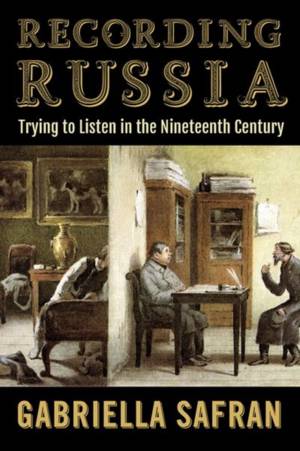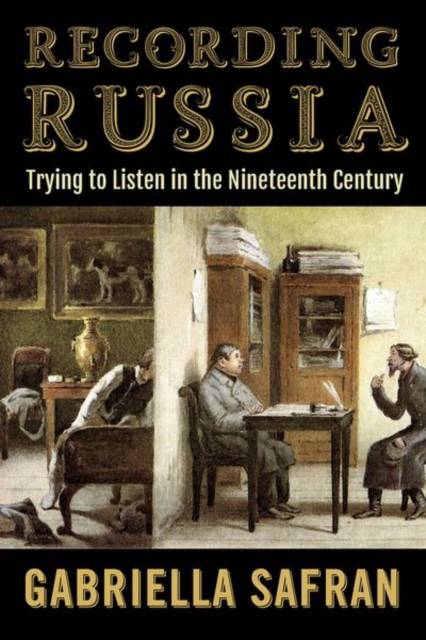
- Afhalen na 1 uur in een winkel met voorraad
- Gratis thuislevering in België vanaf € 30
- Ruim aanbod met 7 miljoen producten
- Afhalen na 1 uur in een winkel met voorraad
- Gratis thuislevering in België vanaf € 30
- Ruim aanbod met 7 miljoen producten
Omschrijving
Winner of the AATSEEL Best Book in Literary Studies of the American Association of Teachers of Slavic and East European Languages
Recording Russia examines scenes of listening to "the people" across a variety of texts by Russian writers and European travelers to Russia. Gabriella Safran challenges readings of these works that essentialize Russia as a singular place where communication between the classes is consistently fraught, arguing instead that, as in the West, the sense of separation or connection between intellectuals and those they interviewed or observed is as much about technology and performance as politics and emotions.
Nineteenth-century writers belonged to a distinctive media generation using new communication technologies--not bells, but mechanically produced paper, cataloguing systems, telegraphy, and stenography. Russian writers and European observers of Russia in this era described themselves and their characters as trying hard to listen to and record the laboring and emerging middle classes. They depicted scenes of listening as contests where one listener bests another; at times the contest is between two sides of the same person. They sometimes described Russia as an ideal testing ground for listening because of its extreme cold and silence. As the mid-century generation witnessed the social changes of the 1860s and 1870s, their listening scenes revealed increasing skepticism about the idea that anyone could accurately identify or record the unadulterated "voice of the people." Bringing together intellectual history and literary analysis and drawing on ideas from linguistic anthropology and sound and media studies, Recording Russia looks at how writers, folklorists, and linguists such as Turgenev, Dostoevsky, and Vladimir Dahl, as well as foreign visitors, thought about the possibilities and meanings of listening to and repeating other people's words.
Specificaties
Betrokkenen
- Auteur(s):
- Uitgeverij:
Inhoud
- Aantal bladzijden:
- 300
- Taal:
- Engels
Eigenschappen
- Productcode (EAN):
- 9781501766329
- Verschijningsdatum:
- 15/11/2022
- Uitvoering:
- Hardcover
- Formaat:
- Genaaid
- Afmetingen:
- 152 mm x 229 mm
- Gewicht:
- 612 g

Alleen bij Standaard Boekhandel
Beoordelingen
We publiceren alleen reviews die voldoen aan de voorwaarden voor reviews. Bekijk onze voorwaarden voor reviews.











